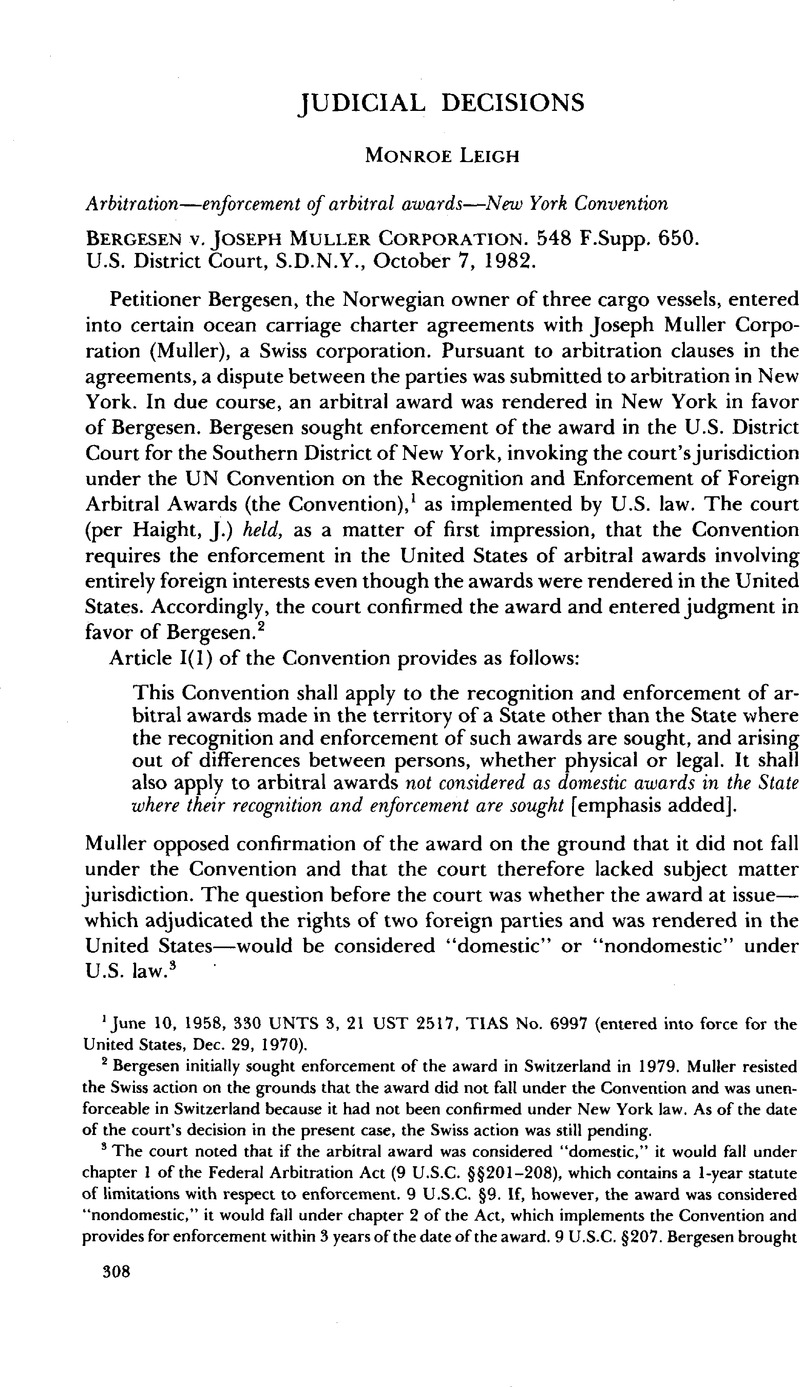No CrossRef data available.
Published online by Cambridge University Press: 27 February 2017

1 June 10, 1958, 330 UNTS 3, 21 UST 2517, TIAS No. 6997 (entered into force for the United States, Dec. 29, 1970).
2 Bergesen initially sought enforcement of the award in Switzerland in 1979. Muller resisted the Swiss action on the grounds that the award did not fall under the Convention and was unenforceable in Switzerland because it had not been confirmed under New York law. As of the date of the court’s decision in the present case, the Swiss action was still pending.
3 The court noted that if the arbitral award was considered “domestic,” it would fall under chapter 1 of the Federal Arbitration Act (9 U.S.C. §§201–208), which contains a 1-year statute of limitations with respect to enforcement. 9 U.S.C. §9. If, however, the award was considered “nondomestic,” it would fall under chapter 2 of the Act, which implements the Convention and provides for enforcement within 3 years of the date of the award. 9 U.S.C. §207. Bergesen brought his enforcement proceeding after 1 year but before the end of 3 years following the award. Thus, it was crucial to Bergesen’s success to establish that the award was nondomestic.
4 548 F.Supp. 650, 653.
5 Thus, the court noted, in Sumitomo Corp. v. Parakopi Compania Maritima, S.A., 447 F.Supp. 737 (S.D.N.Y. 1979), aff’d, 620 F.2d 286 (2d Cir. 1980), the court had held that where entirely foreign interests agree to arbitrate in New York disputes arising out of their commercial relationship, U.S. courts have jurisdiction under the Convention to compel arbitration and, if need be, to appoint an arbitrator.
6 548 F.Supp. at 653.
7 Id. at 654 (quoting H.R. Rep. No. 1181, 91st Cong., 2d Sess. 2 (1970)).
8 548 F.Supp. at 657.
9 Scherk v. Alberto-Culver Co., 417 U.S. 506, 520 n.15 (1974).